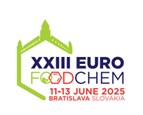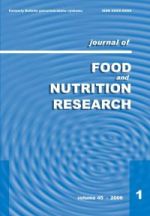Scientific journal
Journal of Food and Nutrition Research
Summary No. 1 / 2008
HRNČÍROVÁ, Z. – BERGEROVÁ, E. – SIEKEL, P.
Effects of technological treatment on DNA degradation in selected food matrices of plant origin
Journal of Food and Nutrition Research, 47, 2008, No. 1, s. 23-28
Peter Siekel, VÚP Food Research Institute, Department of Biotechnology and GMOs, Priemyselná 4, P. O. Box 25, SK – 824 75 Bratislava, Slovakia. E-mail: siekel@vup.sk
Summary: Effects of thermal degradation on amplifiability and quantity of DNA in raw and processed food products were studied. Crucial step in DNA extraction from food samples is homogenization and heat treatment. Agarose gel electrophoresis and PCR methods were used to assess the extent of DNA degradation. Treatment by elevated temperature (200 °C) considerably reduced the size of extracted DNA. To assess the length of amplifiable DNA, relevant primers targeting genes specific for soya, beans, maize and pea were designed. Small DNA fragments with size ranging from 100 to 200 bp were amplified in all samples. Treatment at 80 °C had no effect on amplification of 1 371 bp bean, 1 325 bp maize, 913 bp soya and 874 bp pea DNA fragments. DNA fragments longer than 1 kbp were amplified only if heating at 100 °C and 200 °C lasted no longer than 60 min and 30 min, respectively. Higher temperature (220 °C) reduced the size of DNA extracted from bread so that fragments of soya lectin and epsps genes (both of 1 100 bp) could be no longer amplified. Similar results were obtained using maize genes where no amplification occurred for 1 000 bp amplicons of HMG and zein genes, respectively.
Keywords: DNA integrity; PCR; thermal treatment; soya; beans; maize; pea
Download:
(pdf, 229.37 Kb, 2644x)










